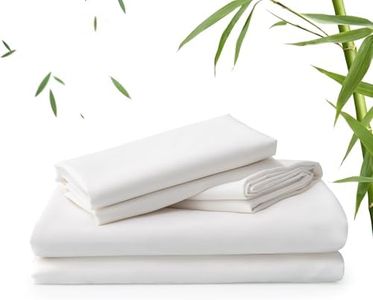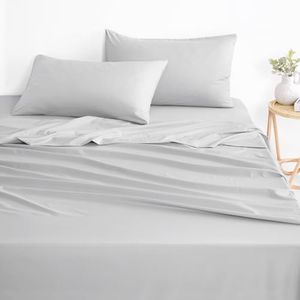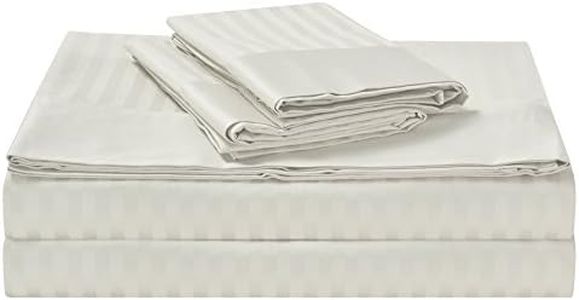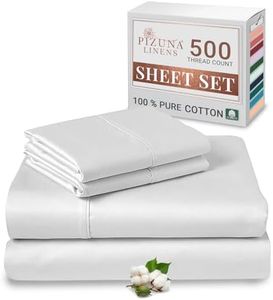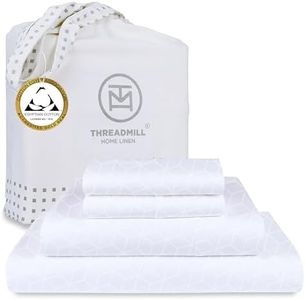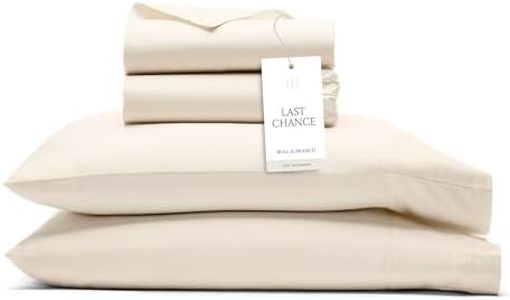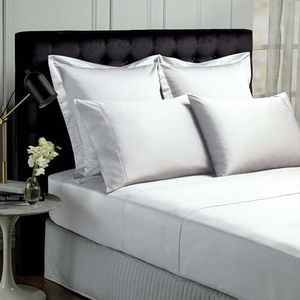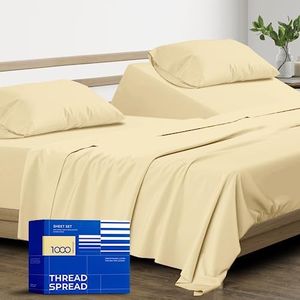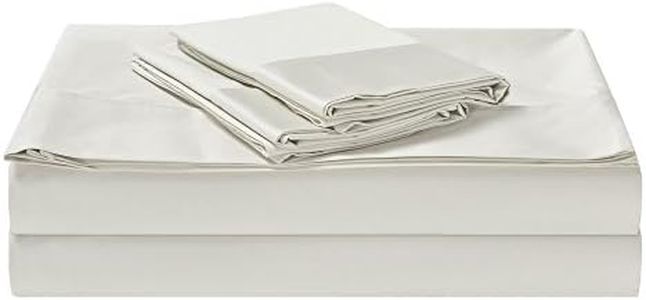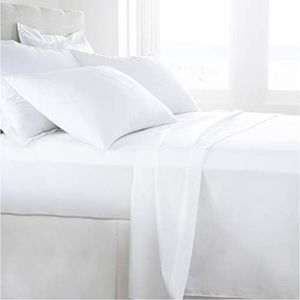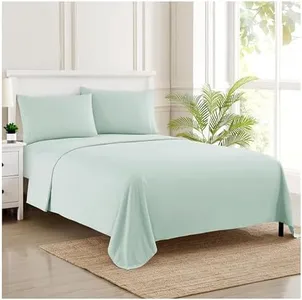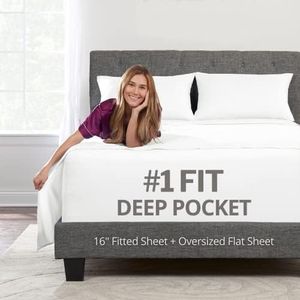We Use CookiesWe use cookies to enhance the security, performance,
functionality and for analytical and promotional activities. By continuing to browse this site you
are agreeing to our privacy policy
10 Best Thread Count Sheets
From leading brands and best sellers available on the web.By clicking on a link to a third party's website, log data is shared with that third party.
Buying Guide for the Best Thread Count Sheets
Choosing sheets can seem overwhelming with all the different options available. A good approach is to focus on understanding the key qualities that affect the feel, durability, and comfort of the sheets. One of the most talked about aspects is thread count, but it's important to know what this really means and what other factors you should also consider. By knowing a bit about each important spec, you can make a choice that matches how you sleep, how you care for your bedding, and what feels good to you.Thread CountThread count refers to the number of threads woven together per square inch of fabric, including both lengthwise and widthwise threads. Many people believe that higher thread count always means better sheets, but that's not necessarily true. Generally, thread counts between 200 and 400 are considered good for most cotton sheets and should feel breathable and soft. Lower thread counts under 200 might feel more basic or rough, but can be lighter and cooler, which is sometimes appreciated for hot sleepers or for summer use. Higher thread counts above 400 can feel smoother and heavier, but they aren't always softer, and sometimes may trap more heat or aren't as durable if achieved by using lower quality threads. When deciding, consider how much importance you place on softness, breathability, and sheet weight, as well as your typical sleeping temperature.
Fabric MaterialThe material of the sheet, such as cotton, linen, bamboo, or microfiber, plays a bigger role in comfort than thread count alone. Cotton is common and versatile, with types like Egyptian or Pima offering a softer feel. Linen is breathable and good for hot climates, but has a coarser texture. Bamboo tends to be very smooth and moisture-wicking, making it great for sensitive skin or warmer sleepers. Microfiber sheets are soft and affordable, but not as breathable. Choose the material based on whether you value softness, coolness, durability, or ease of care.
Weave TypeThe weave (such as percale or sateen) affects the sheet’s texture and feel. Percale weave is crisp, cool, and matte, which is perfect if you like the feel of hotel sheets or tend to sleep warm. Sateen weave is silkier and has a slight sheen, feeling heavier and warmer, which is ideal if you want something softer and cozier. Your choice should depend on whether you like your sheets to feel crisp and cool or smooth and warm.
Finishing and TreatmentSome sheets are treated for wrinkle resistance or to prevent shrinking. While these treatments can make care easier and help the sheets stay smooth, they can also affect softness and, in some cases, might use chemicals you want to avoid if you have sensitive skin. If hypoallergenic or organic products are important to you, look for untreated or certified options.
Fit and SizeSheets come in standard sizes but the fit can vary. Deep-pocket sheets are designed to fit thicker mattresses, while regular ones suit standard mattresses. Make sure to choose a set that matches your mattress dimensions so the sheets stay snug and don’t pop off during the night.
